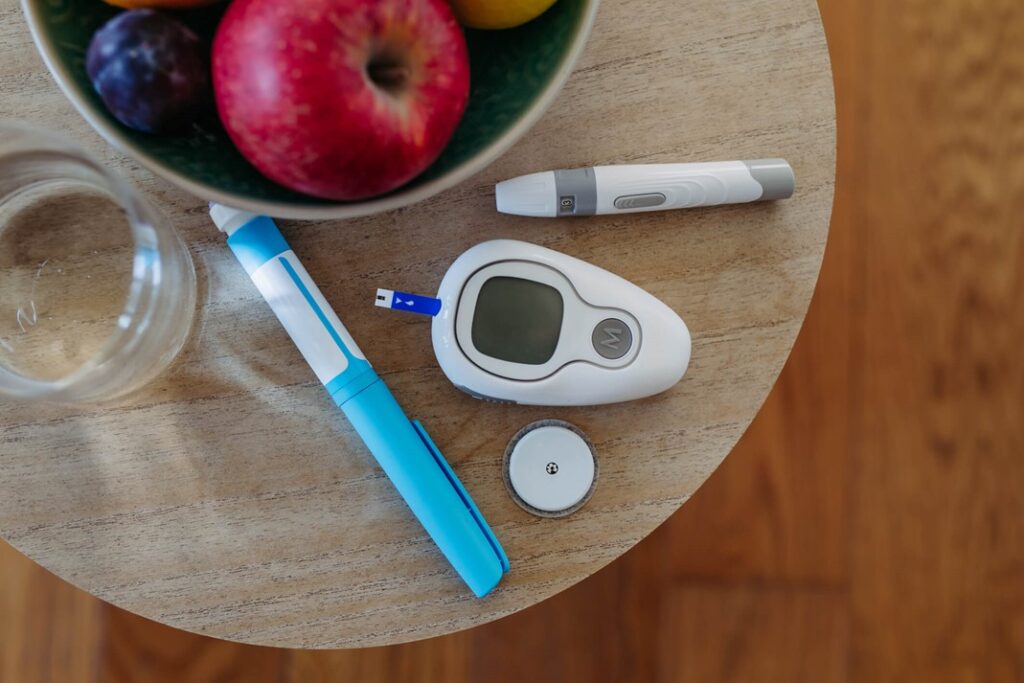The Role of Oral Health in Managing Diabetes
When managing diabetes, the focus is often on blood sugar, diet, and medication. But there’s another piece to the puzzle: oral health. Your mouth plays a big part in your overall wellness, especially if you’re living with diabetes. In fact, the connection between oral health and diabetes is more direct than many people realize.
How Diabetes Affects Your Mouth
High blood sugar directly influences the environment inside your mouth. Here’s how:
- Faster bacterial growth: Elevated glucose levels in your saliva feed harmful bacteria, which leads to more plaque buildup, inflammation, and tooth decay.
- Lower saliva production: Diabetes reduces your body’s ability to produce saliva. Without enough moisture, your mouth becomes dry, creating a more acidic environment and making it easier for bacteria to stick to teeth and gums.
- Weakened immune system: When diabetes isn’t well-controlled, it weakens your immune system. This makes it harder to fight off the bacteria causing trouble in your mouth.
Together, these factors increase your gum disease risk. The combination of more bacteria, reduced saliva, and a compromised immune system allows gum infections to develop quickly and become harder to treat. This sets the stage for periodontal disease, a more advanced form of gum disease that affects your oral health and blood sugar control.
How Gum Disease Affects Diabetes
It’s not a one-way street. Diabetes doesn’t just increase the risk of gum disease; gum disease can also make diabetes more difficult to manage. When your gums are inflamed, your body releases certain chemicals into the bloodstream. These inflammatory chemicals interfere with insulin’s ability to work properly, making blood sugar levels harder to stabilize.
This relationship forms a feedback loop—poor oral health makes diabetes harder to control, and uncontrolled diabetes worsens oral health. That’s why it’s so important to take oral health seriously if you’re living with diabetes. Managing inflammation through dental care keeps your smile attractive and protects your overall health.
Oral Health Concerns for People with Diabetes
People with diabetes face specific oral health challenges. Here are the most common issues to watch for:
- Gum disease: In the early stage of gum disease, known as gingivitis, you might notice bleeding when you brush. As it progresses to periodontal disease, gum tissue pulls away from the teeth, forming pockets that harbor bacteria. This can eventually lead to bone loss and tooth loss if left untreated.
- Tooth decay and abscesses: A sugar-rich environment inside the mouth accelerates decay, leading to cavities and infections that may reach the tooth’s root. These infections sometimes require root canals or extractions.
- Dry mouth (xerostomia): Reduced saliva production is common in people with diabetes. Without enough saliva, higher rates of tooth decay and mouth sores are likely.
- Burning mouth syndrome: This condition creates a sensation of burning, tingling, or numbness in the mouth. It’s often linked to dry mouth and nerve issues associated with diabetes.
- Fungal infections like thrush: Elevated glucose levels can cause an overgrowth of the fungus Candida albicans, resulting in painful white patches on the tongue, gums, or roof of the mouth.
- Delayed healing after dental procedures: Whether you need a filling, crown, or extraction, diabetes can slow the healing process. This increases the risk of post-procedure infections and discomfort.
Smart Strategies for Oral Care and Diabetes Management
Taking care of your teeth and gums while living with diabetes requires you to go above and beyond the basics. Here’s how to stay ahead:
- Brush and floss regularly: Use a fluoride toothpaste and brush twice daily using a soft-bristled toothbrush. Then, floss once daily to remove plaque and food particles between teeth that a toothbrush can’t reach.
- Rinse when needed: An antimicrobial or fluoride rinse strengthens enamel and reduces bacteria. Your dentist may recommend a prescription rinse if you have a high infection risk.
- Keep your mouth hydrated: Drink water throughout the day to combat dry mouth. Also, run a humidifier at night, avoid alcohol-based mouthwashes, and chew sugar-free gum to stimulate saliva production.
- Monitor your blood sugar consistently: Better blood glucose control directly reduces your risk of gum infections and improves healing. Regular monitoring allows you to make adjustments before complications develop.
- Schedule regular dental checkups: While two visits a year work for many people, your dentist may recommend more frequent cleanings and exams if you’re managing diabetes.
- Limit your use of substances: Cigarettes and other tobacco products damage blood vessels and slow healing, making gum disease harder to treat. Then, caffeine and alcohol dry out your mouth, reducing the natural protection saliva offers. Quit smoking and choose water whenever possible.
Partner with Our Dental Team
S&C Dental Scottsdale understands how diabetes affects your body and will work closely with you to prevent complications. We’ve treated thousands of patients and know how to recognize early signs of trouble before they become major issues. If you have diabetes and need a dentist in Scottsdale who understands how to support your health through expert dental care, we’re here for you! Contact us or schedule an appointment online today.



